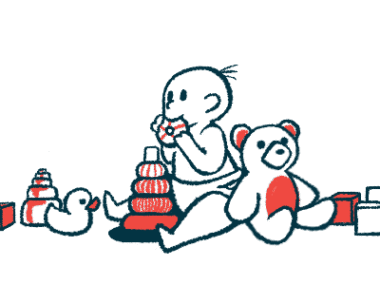NICE Favors Adding Epidyolex, Cannabidiol Oral Solution, to NHS for Dravet Patients in England
Written by |

The National Institute of Health and Care Excellence (NICE), an arm of U.K.’s public health system, favors use of the oral cannabidiol solution Epidyolex as an add-on to clobazam to treat seizures associated with Dravet syndrome and Lennox Gastaut syndrome (LGS) in patients in England starting at age 2.
This is the first time a plant-derived, cannabis-based medicine has been recommended by NICE to be routinely covered under the country’s National Health System (NHS), making it available at no or low cost.
“This is a momentous occasion for UK patients and families who have waited for so many years for rigorously tested, evidenced and regulatory approved cannabis-based medicines to be reimbursed by the NHS,” Chris Tovey, CEO of GW Pharmaceutical, the developer of Epidyolex, said in a press release.
“This is proof that cannabis-based medicines can successfully go through extensive randomized placebo-controlled trials and a rigorous NICE evaluation process to reach patients. I am hugely proud of the entire GW team for achieving this milestone in the country where the company was founded and where both of these medicines were developed and are manufactured,” Tovey added.
Under the name Epidiolex, this cannabidiol solution was approved by FDA more than one year ago to treat seizures in children and adults with Dravet syndrome and LGS. NICE’s recommendation follows the European Commission (EU) approving this medicine in September for the same patient population, as an add-on to the anti-epileptic medication clobazam (brand names Onfi and Sympazan), after a favorable opinion by the European Medicines Agency (EMA).
EU approval was based on data from three randomized and controlled Phase 3 clinical trials (NCT02091375, NCT02224703 and NCT02224560), and an open-label extension study (NCT02224573).
Extension study results showed that treatment with Epidyolex reduced convulsive seizures by 38%–44%, and all seizures by 39%–51%. Its use also improved overall health and clinical status in roughly 80% of patients at six months and one year of treatment.
Following EU approval, GW has been working with institutions in the U.K, Germany, Spain, France, and Italy to ensure health system reimbursement ahead of the medicine’s launch.
“NICE’s recommendation of cannabidiol oral solution follows a period of great anticipation and enthusiasm for patients and their clinicians. The European Medicines Agency (EMA) license and availability through the NHS is welcome as we badly need additional effective treatments for Dravet and Lennox Gastaut syndromes,” said Rhys Thomas, MD, a consultant neurologist at the Royal Victoria Hospital.
Epidyolex is an oral solution of a purified form of cannabidiol (CBD), extracted from the cannabis plant. CBD is a non-psychoactive compound, meaning it does not have the mind-altering effects associated with the plant that gets people “high.”
When added to other anti-epileptic treatments, Epidyolex significantly reduced the frequency of seizures in patients with LGS and Dravet syndrome in its clinical trials. The most common side effects reported are somnolence, decreased appetite, diarrhea, fever, fatigue, and vomiting.
Although it is not yet clear how CBD interacts with other anti-epileptic treatments to reduce the number of seizures, results available so far highlight the efficacy of using it as an add-on treatment.
“We welcome the addition of cannabidiol oral solution as a new medicine to add to the Dravet syndrome treatment armamentarium. Dravet syndrome is a devastating condition and having a new treatment option offers potential new hope to patients and their families searching for better seizure control,” said Galia Wilson, chair of the charity Dravet Syndrome UK.
“Many families come to us asking about the potential of cannabis-based medicines, particularly cannabidiol (CBD), and we are thrilled that one is now available on the NHS,” she added.




